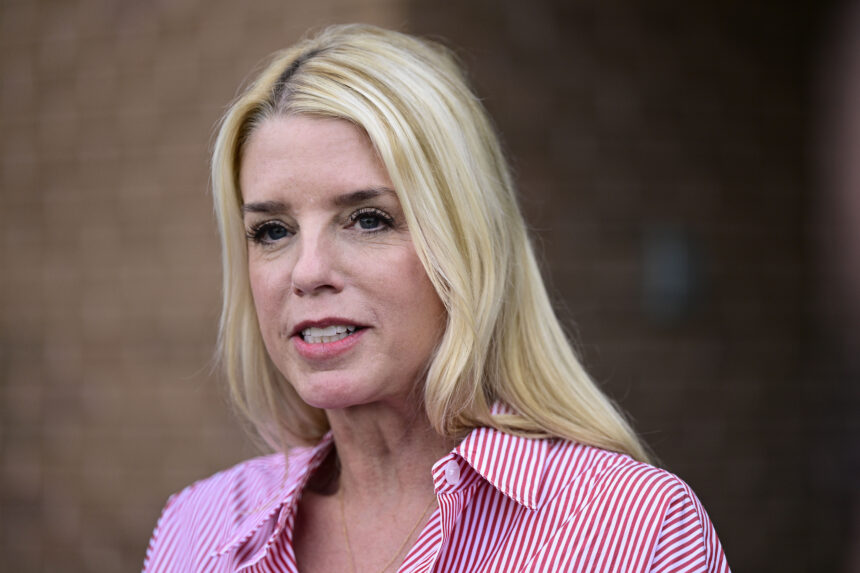As Pam Bondi prepares to take on the role of Attorney General, her extensive background as a Washington lobbyist for major corporations has raised concerns and sparked optimism among various business entities. Bondi’s tenure at Ballard Partners, where she represented companies like Amazon and Uber, has positioned her as a potential ally for corporate interests facing legal challenges from the Department of Justice.
Some of the clients Bondi’s firm represents, such as UnitedHealthcare and TikTok, have already paid significant sums to Ballard Partners for lobbying efforts. This has led to speculation that Bondi’s appointment could result in a more favorable environment for these companies under the new administration, particularly in contrast to the more stringent regulatory stance of President Joe Biden.
However, Bondi’s nomination has also raised ethical questions regarding potential conflicts of interest and the extent of her involvement with her former firm. As she continues to serve as a partner at Ballard Partners, concerns have been raised about the access she may grant the firm and whether she will recuse herself from matters involving Ballard’s clients.
Critics argue that Bondi’s extensive connections and past lobbying activities make it challenging to ensure ethical governance within the Justice Department. Her close ties to major corporations, including the GEO Group, a private prison company with significant government contracts, have raised alarms about the potential for preferential treatment in legal matters.
Despite these concerns, supporters of Bondi believe that her experience and relationships may benefit corporate interests seeking a more cooperative relationship with the government. With her background in corporate regulatory compliance and her advisory role at Ballard Partners, Bondi is seen as a bridge between businesses and the Justice Department.
As the tech industry faces ongoing legal challenges, including the case against TikTok, Bondi’s nomination has been met with cautious optimism. Major technology companies, who have been at odds with the Department of Justice over antitrust issues, view Bondi as a potential advocate for a more centrist approach to business regulation.
Bondi’s past decisions as Florida’s attorney general, particularly her handling of cases involving corporate entities like Trump University, have drawn scrutiny from progressives. However, her supporters emphasize her ethical standards and commitment to upholding the responsibilities of her new role.
Moving forward, the confirmation of Pam Bondi as Attorney General will undoubtedly bring a new dynamic to the Department of Justice, with implications for both corporate interests and regulatory enforcement. As she navigates the challenges of her new position, Bondi will need to balance her past affiliations with her commitment to serving the public interest in a fair and impartial manner. The Biden administration, in conjunction with several states, is taking a stand against the proposed acquisition of Amedisys by UnitedHealth, citing concerns about potential anti-competitive effects in the healthcare industry. The move to block the merger comes as Ballard Partners, a lobbying firm, has been advocating for UnitedHealthCare Services in Washington since last summer.
Pam Bondi, who would oversee drug policy as a top prosecutor, is also under scrutiny for her ties to corporate interests. With President Trump signaling support for loosening federal marijuana regulations, Bondi’s past work with Trulieve, a cannabis company, on medical marijuana policy has raised eyebrows among good governance advocates.
Rick Claypool of Public Citizen, a progressive consumer advocacy group, has expressed concerns about Bondi’s corporate background and its potential influence on her role in the Justice Department. He worries that her history of shielding businesses from enforcement actions could impact the agency’s ability to hold corporate wrongdoers accountable.
The revolving door between government and corporate interests has long been a point of contention, with critics arguing that former industry insiders may prioritize their former clients over the public interest. Claypool emphasizes the importance of allowing DOJ prosecutors to pursue cases without interference from their past connections, particularly when dealing with powerful corporate entities.
As the Biden administration and states push back against the UnitedHealth-Amedisys merger, the debate over corporate influence in government continues to simmer. The need for transparency, accountability, and a commitment to upholding the law remains paramount as the Justice Department navigates its enforcement actions in the healthcare and drug policy sectors.






